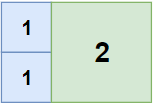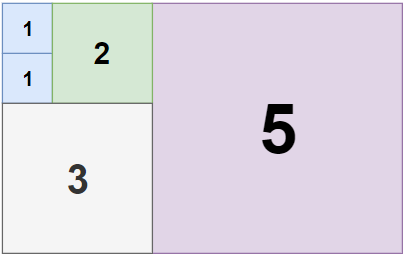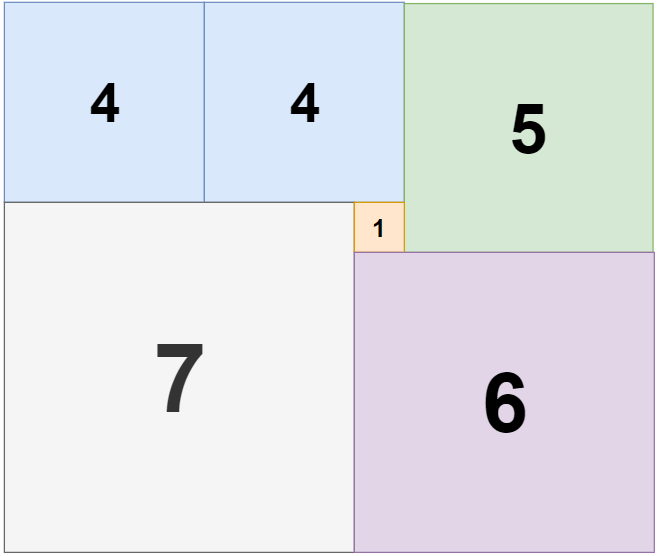1240. Tiling a Rectangle with the Fewest Squares
Description
Given a rectangle of size n x m, return the minimum number of integer-sided squares that tile the rectangle.
Example 1:

Input: n = 2, m = 3 Output: 3 Explanation:3squares are necessary to cover the rectangle.2(squares of1x1)1(square of2x2)
Example 2:

Input: n = 5, m = 8 Output: 5
Example 3:

Input: n = 11, m = 13 Output: 6
Constraints:
1 <= n, m <= 13
Solutions
Solution: Backtracking
- Time complexity: O(mn*2m)
- Space complexity: O(2m+m)
JavaScript
js
/**
* @param {number} n
* @param {number} m
* @return {number}
*/
const tilingRectangle = function (n, m) {
const memo = new Map();
const heights = Array.from({ length: m }, () => 0);
const getHeightsHash = () => {
const BASE_HASH = 13;
return heights.reduce((hash, height) => hash * BASE_HASH + height, 0);
};
const tilingRect = () => {
const hash = getHeightsHash();
if (memo.has(hash)) return memo.get(hash);
const minHeight = Math.min(...heights);
if (minHeight === n) return 0;
const start = heights.indexOf(minHeight);
let result = m * n;
for (let length = 1; length <= Math.min(m - start, n - minHeight); length++) {
if (heights.slice(start, start + length).some(height => height !== minHeight)) break;
for (let index = start; index < start + length; index++) {
heights[index] += length;
}
result = Math.min(tilingRect(), result);
for (let index = start; index < start + length; index++) {
heights[index] -= length;
}
}
memo.set(hash, result + 1);
return result + 1;
};
return tilingRect();
};